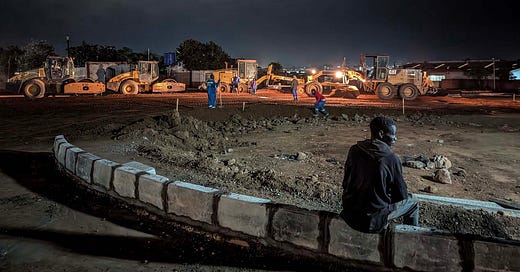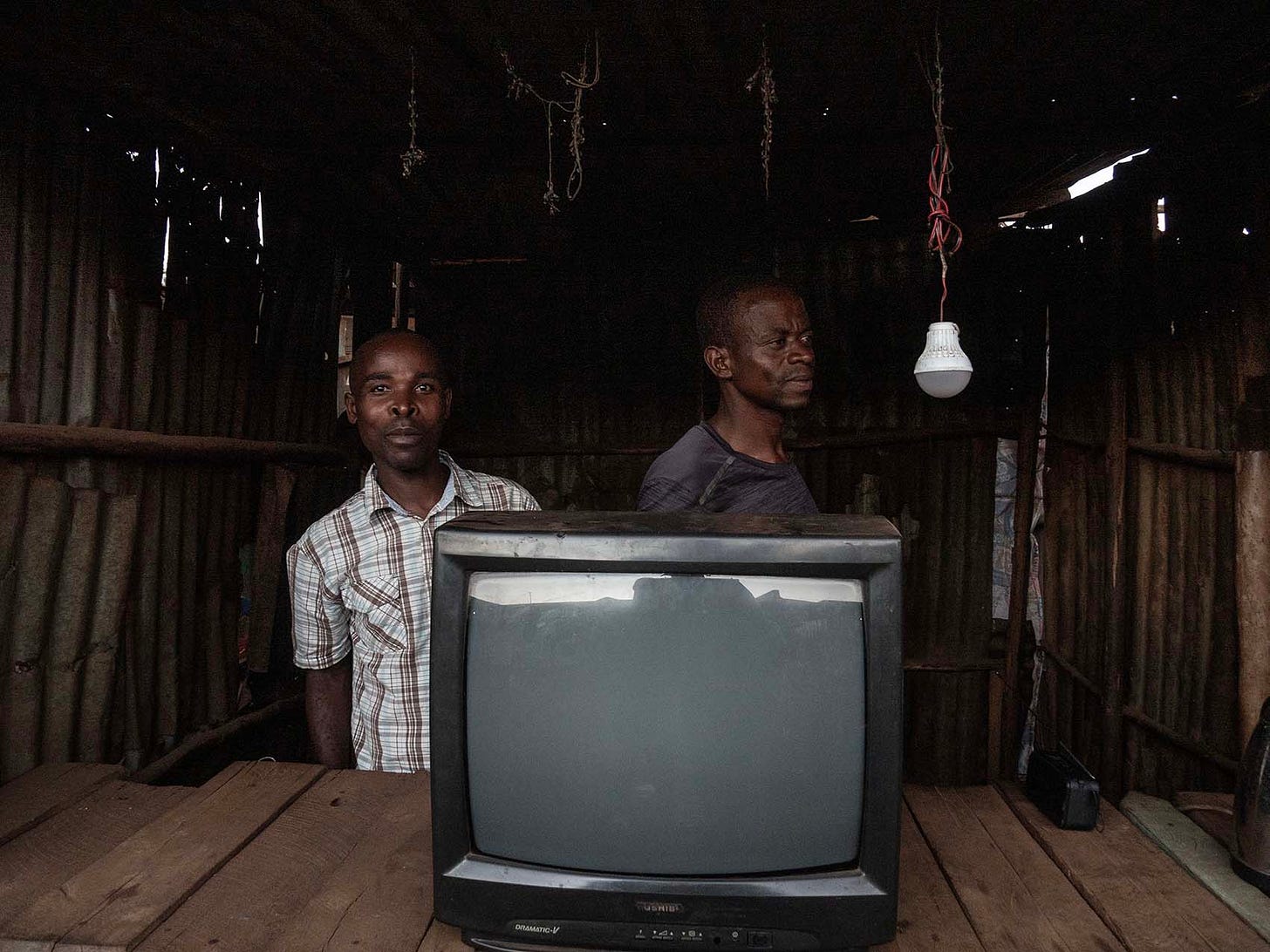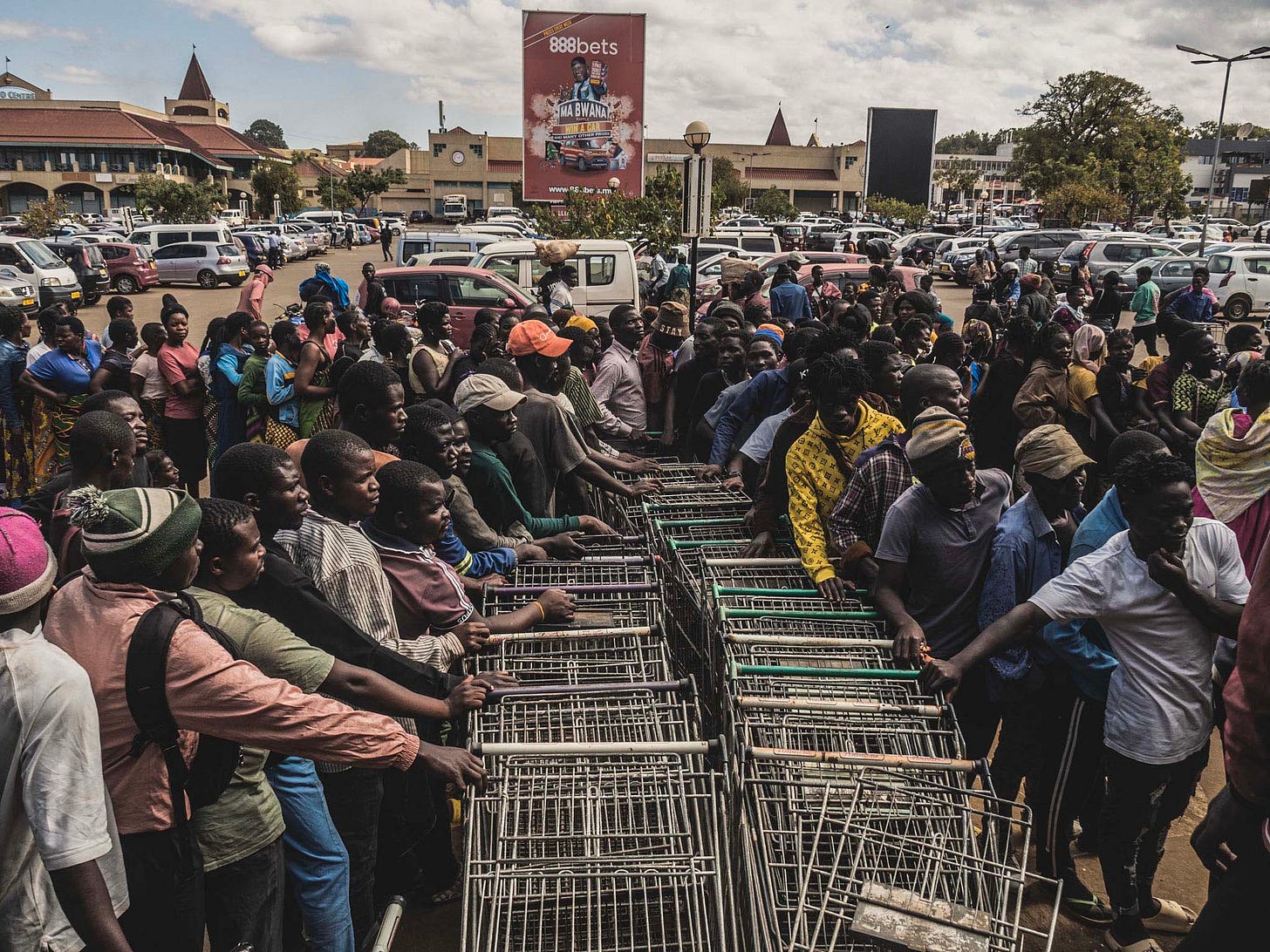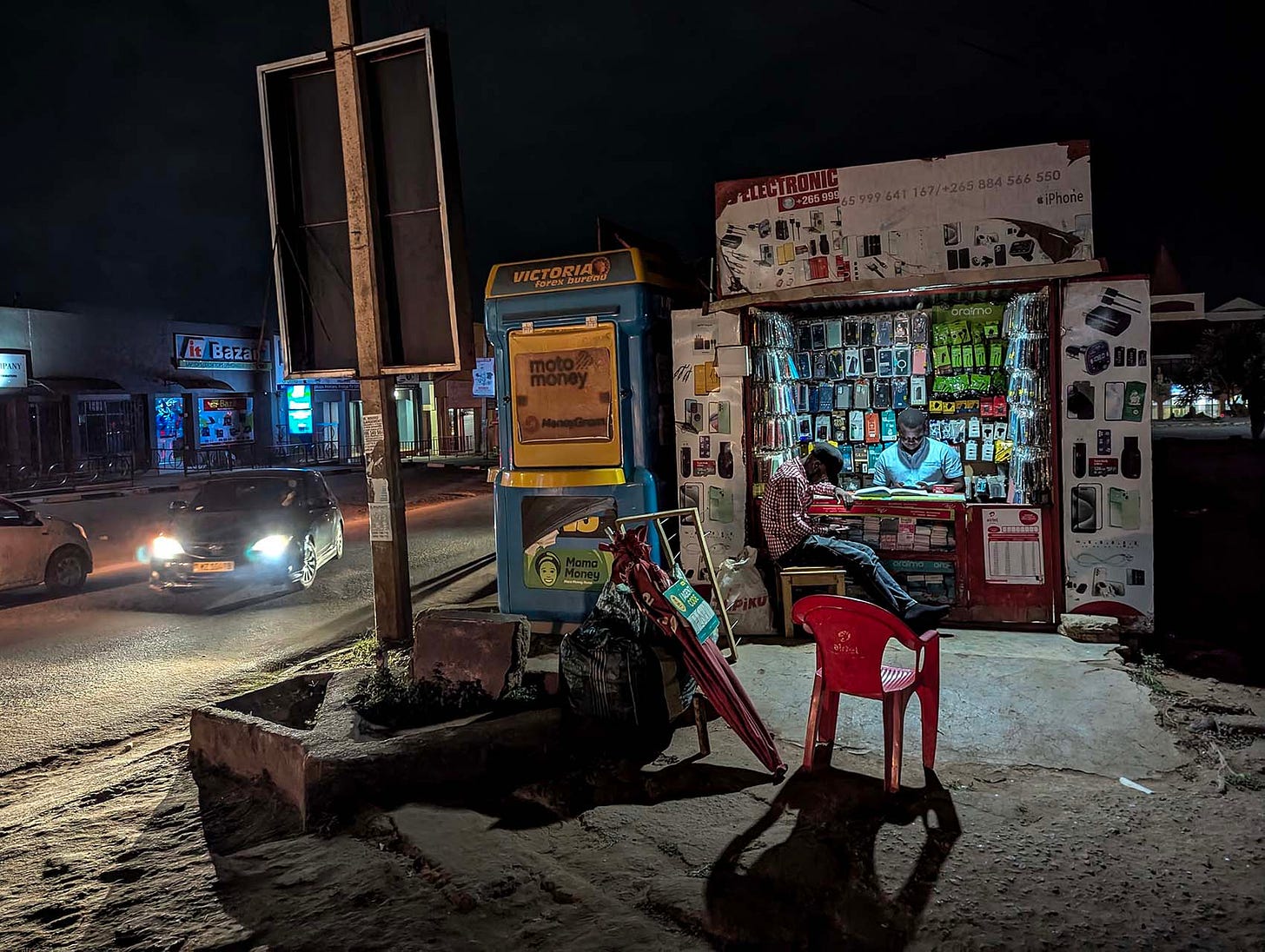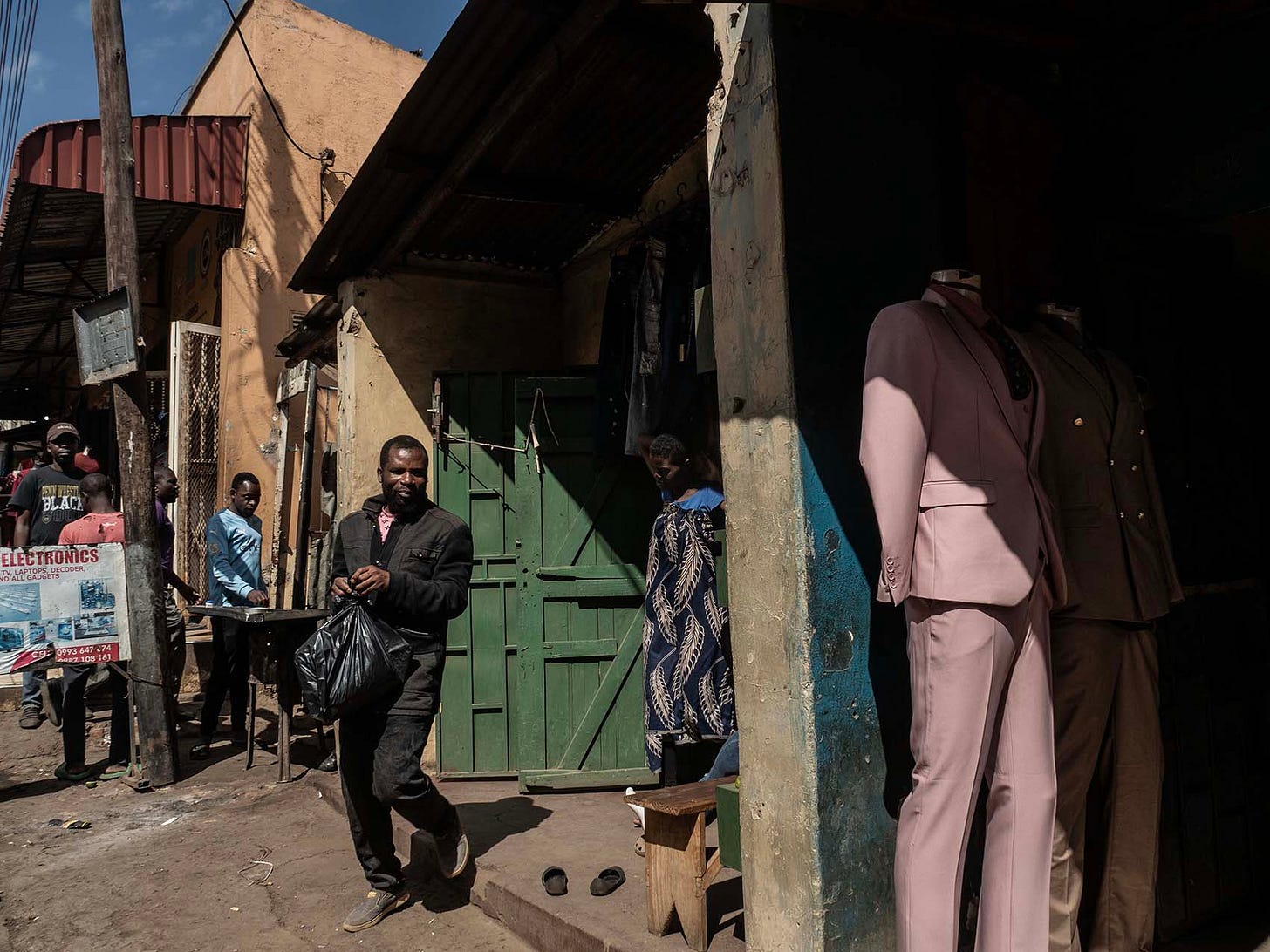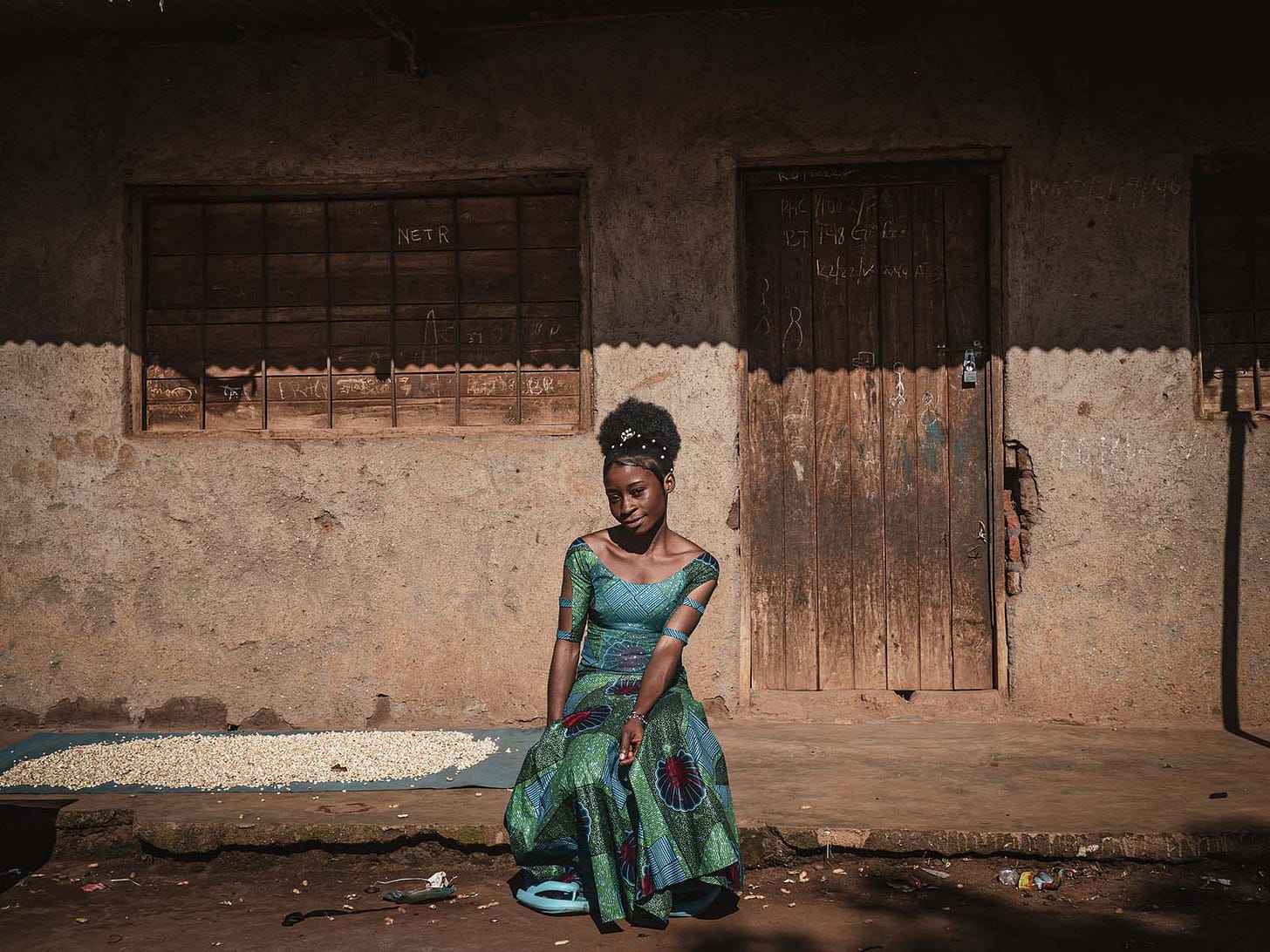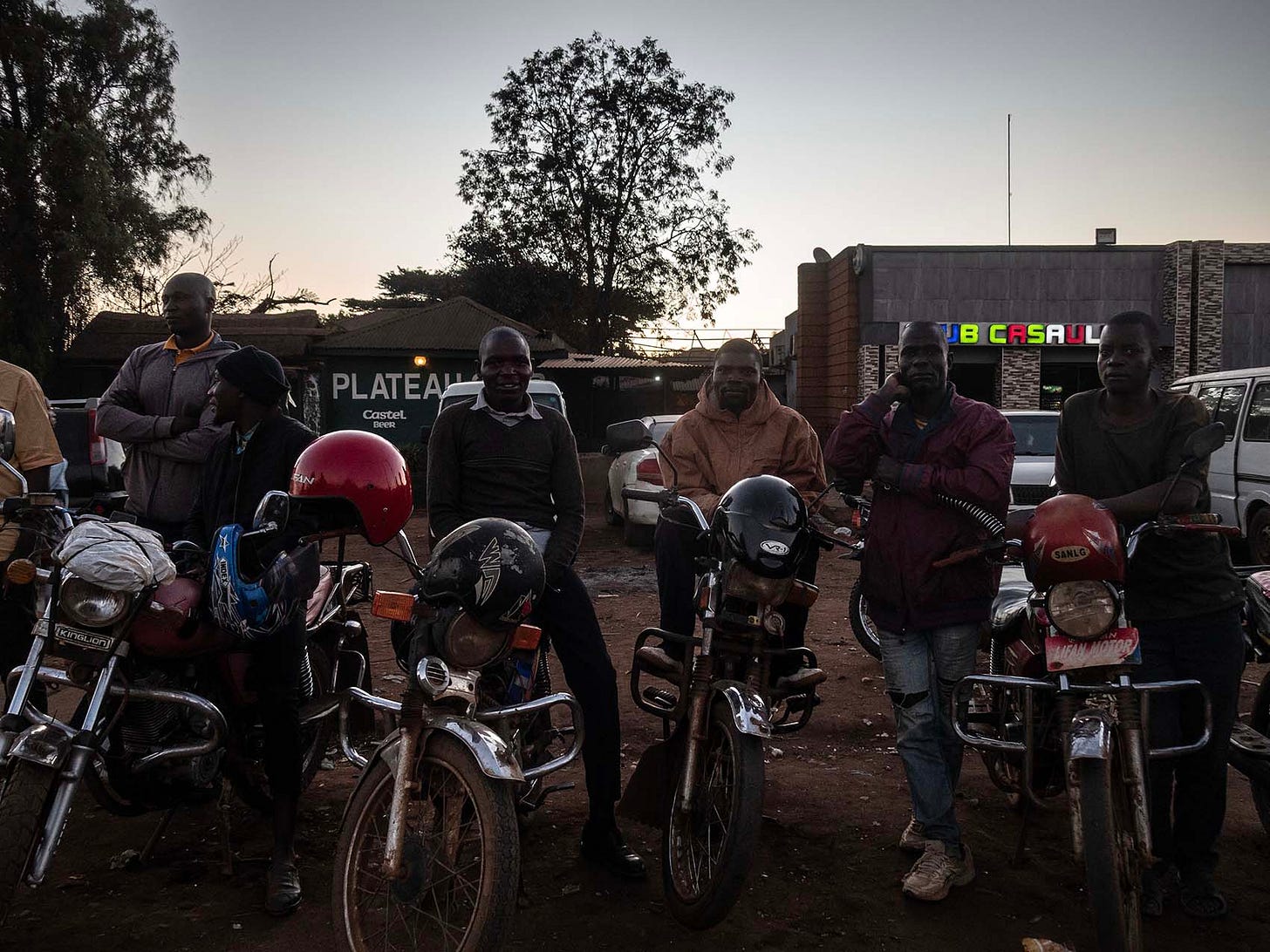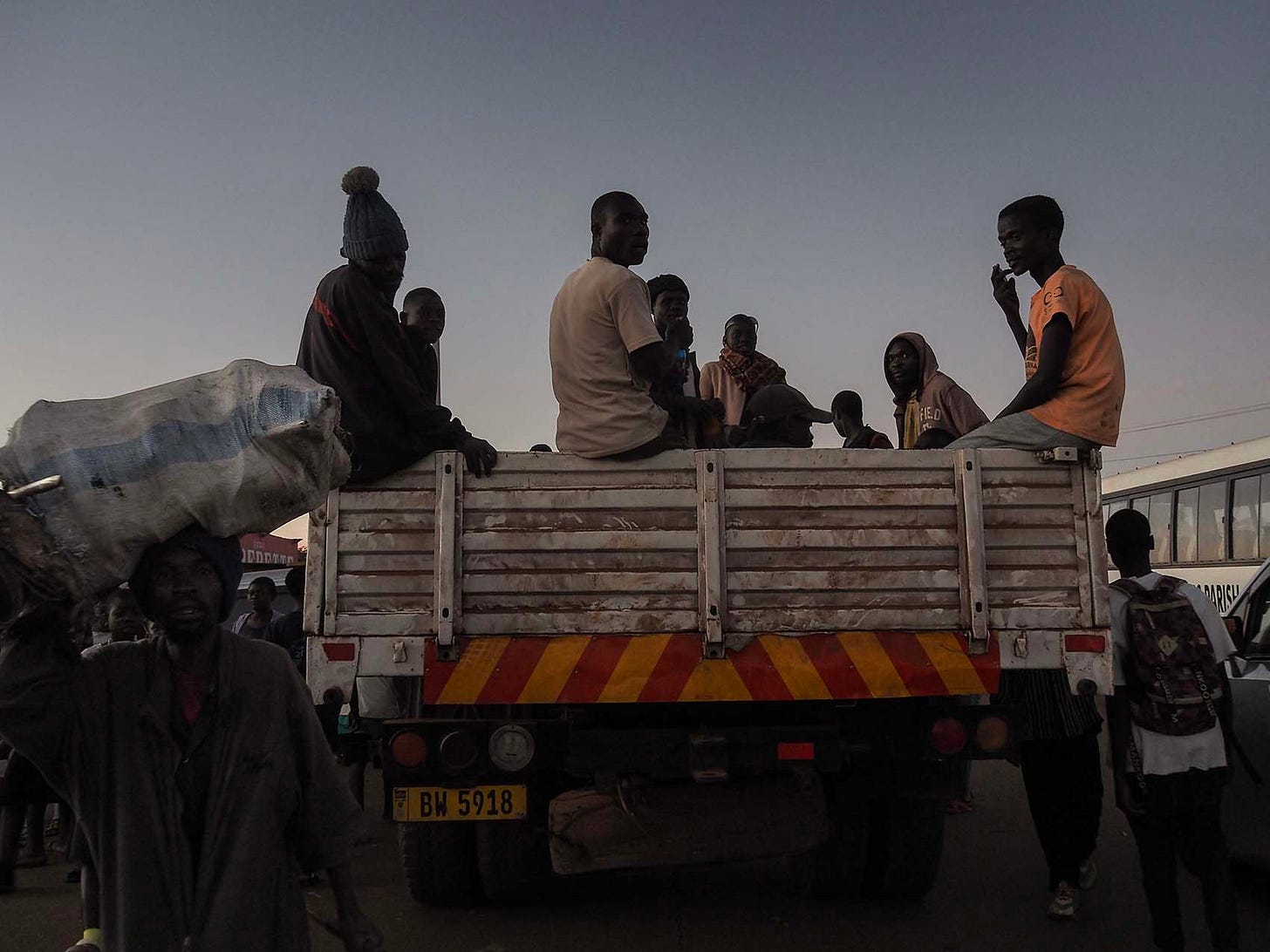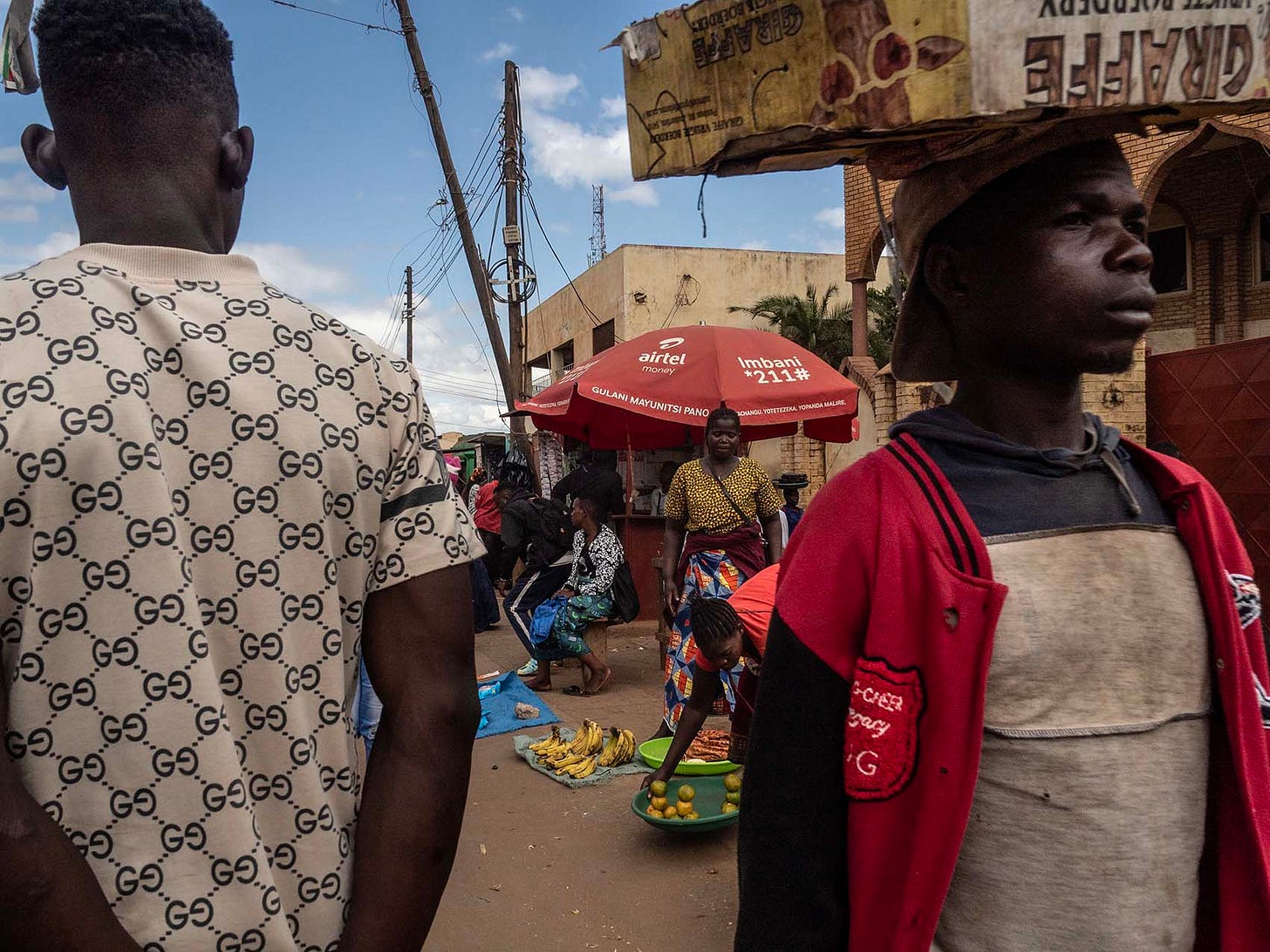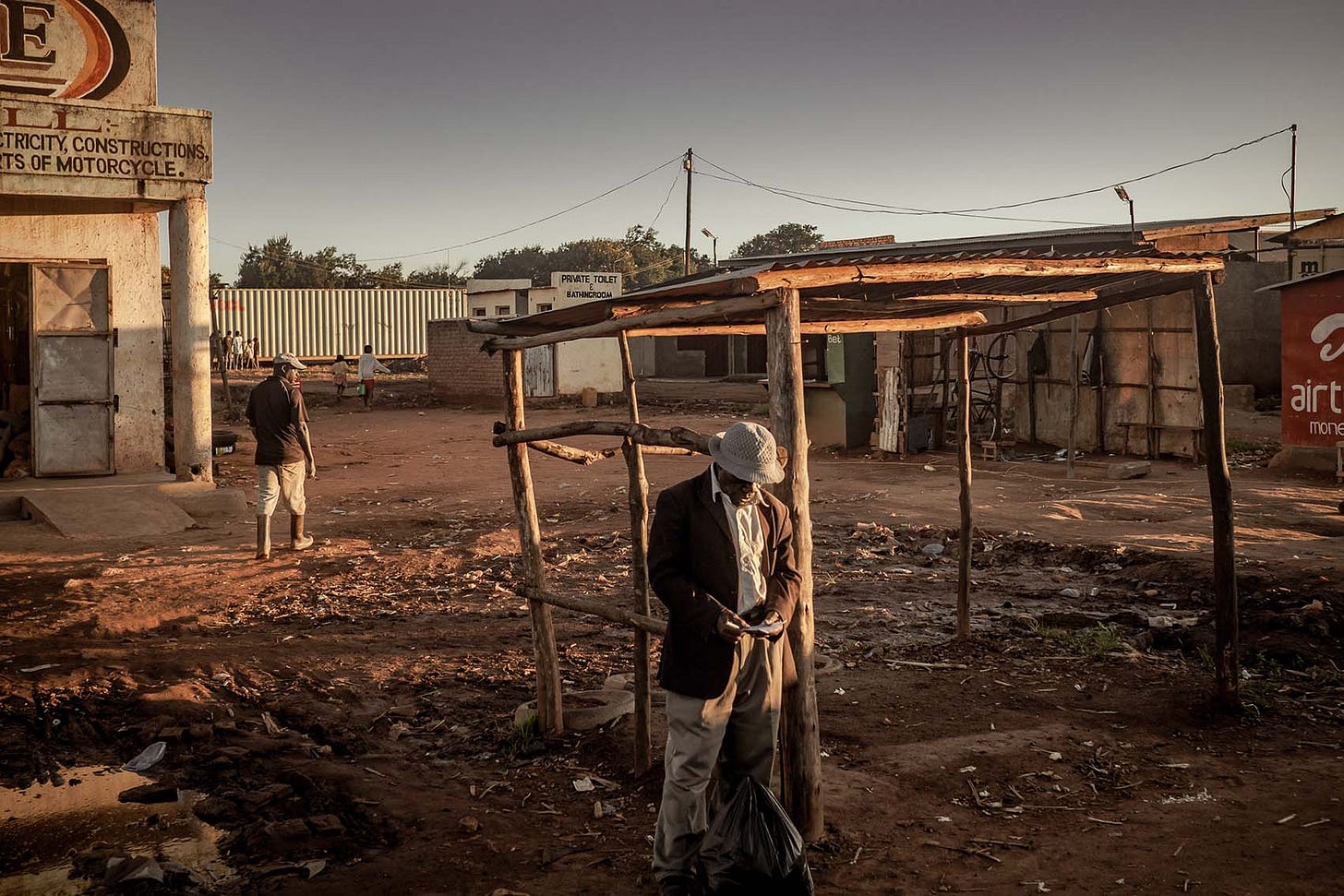Lilongwe, and how we hold the space we make
We Built This City is a limited series of photo essays by The Continent on African cities. This week, we are in Lilongwe with James Jamu.
Words and photos: James Jamu
Lilongwe is transforming slowly and quietly. Rural texture is giving way to burgeoning cityscapes as highways expand and new buildings rise. The future is arriving, but unevenly. People are making do, adapting in ways that defy both nostalgia and progress.
From the diaspora, peering back into the city, I sense anxiety, exhaustion, resistance and a nauseating silence in Lilongwe. When I return with my camera, I find myself held by overwhelming internal conflict. I have been relearning photography, becoming more aware how the tools I use were shaped by colonial ways of seeing.
Decolonial criticism of photography says that the medium has focused too long and too much on African hardship. Is that a call to deny the hardship we witness and give the space to narratives of resilience, dignity and joy? That, too, feels like erasure.
I’m caught between the urge to illuminate struggle and the fear of reproducing trauma for spectacle. Desperately reaching for a way of seeing that neither flattens pain nor fetishises survival. A way to hold complexity without collapsing it into hope or despair. The documentary effort becomes a deeply personal and conflicted attempt to witness Lilongwe anew.
With each frame, I grow more uncomfortable with the act of looking. My training in film theory and practice has disrupted how I understand the ethics of visibility.
Every photowalk is haunted by questions of how to show what is, without inscribing pity, exoticism or distance. How ought I to represent lives shaped by histories that photography has often exploited?
The friction between my lens and conscience slows me down. I hesitate, to make space for the questions.
I hope these images hold that space too, making the viewer sit with the contradictions of a city suspended between alternate speeds: the modern world barrels forward but many of its residents remain rooted in something slower, not failing but being failed by systems, pace and forgetfulness.
Above all, I hope this is a meditation on how hard it is to see clearly, and how important it is to try anyway.

